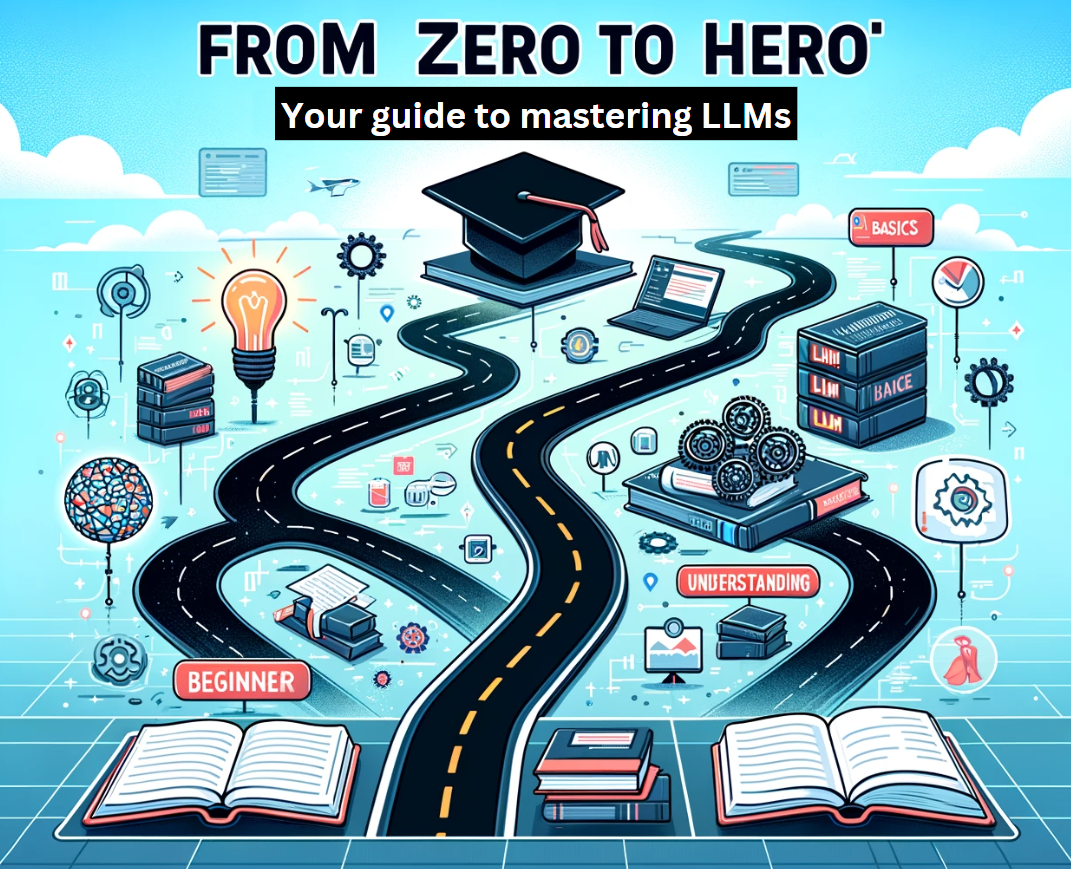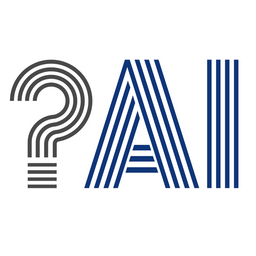Start with Large Language Models (LLMs) in 2023 - Become an expert for free!
Learn LLMOps now. A complete guide. Free.

Follow my newsletter to get weekly updates on my projects!
Watch the video:
A short introduction…
Welcome back to my channel, today, I want to reiterate something I did a few years ago. In 2021 I shared a guide for learning machine learning with lots of amazing resources to get into the field and improve.
Even though I keep this guide up-to-date by constantly changing and adding courses, books, relevant newsletters, podcasts, and more, the field has changed a lot, and so has my view of it. Now, I think the time is to productize and learn real-world skills rather than the theory behind those powerful algorithms.
Now is the time to dive and learn to use and work with Large Language Models. If you’re eager to dive into AI or enhance your existing skills, this article is your comprehensive guide to mastering LLMs, tailored for diverse backgrounds. For those completely new to programming or AI, I recommend starting with my beginner’s guide to AI linked below.”
The Importance of LLMs and Current AI Landscape
Before we go into the how-to, let’s understand why LLMs are pivotal in today’s tech landscape. And why the MLOps, or even LLMOps skills, are becoming more and more relevant, even more than the math and science behind those models. LLMs are revolutionizing how we interact with technology, from chatbots to advanced data analysis. Companies across various industries are integrating these models to enhance customer experience, automate tasks, and drive innovation. I am pretty sure that all companies in the S&P 500 are using AI in multiple ways, either building it or leveraging existing products like OpenAI’s GPT models. Understanding LLMs opens doors to cutting-edge careers and positions you at the forefront of AI advancements. This is not a course, by the way. I don’t believe there is one course that can teach you everything. Rather, this is an applied list of resources to help you learn all the most valuable skills in the industry and build a strong LLM-focused portfolio for getting your next job or simply to boost your productivity or create your own startup. Oh, and it’s completely free. I share all free resources and some optional paid ones if you want, but they are for sure not mandatory to become an expert with LLMs.
By the way, this guide is a continuous work that I will keep updating. If you know any good resources related to LLMs in the real world that aren’t in the guide, please send them to me or submit an issue on github and I will certainly check it out and add it.
Getting Started with LLMs
Embarking on your LLM journey starts with building a solid foundation. I’ve curated a selection of short and information-pact YouTube videos for a comprehensive introduction to LLM concepts and terminology. These videos break down complex ideas like Transformers, attention mechanisms, and embeddings into digestible content. I believe listening to videos is the best way to start in a new field. You just sit down, relax and enjoy. There’s no commitment, and you just listen. For auditory learners, I also share many podcasts to learn more from fascinating discussions with experts in the field. They’re perfect for learning during commutes, runs, or downtime. I found podcasts and audiobooks to be super-efficient for learning while doing other things. My top recommendations include the ‘Lex Fridman Podcast’, ‘Machine Learning Street Talk’, and of course, my podcast, ‘What’s AI by Louis Bouchard’, where we dive deep into AI topics and share inspiring stories from experts in the field. I share more of them in the guide.
Dive Deeper with Reading and Online Courses
To deepen your LLM knowledge, I’ve gathered a range of reading materials and the best free online courses. For the readers, explore insightful articles and books like ‘The Illustrated Transformer’ by Jay Alammar, which I hope you know, otherwise, you need to google it now and read this amazing article. This visually engaging piece simplifies the mechanics of current language models. Additionally, online courses offer structured and comprehensive learning experiences. Check out the ‘Train & Fine-Tune LLMs for Production Course’ by Activeloop, Towards AI and the Intel Disruptor Initiative, and the ‘LLM University’ by Cohere, blending theory with practical application, all for free. For a hands-on approach, the YouTube ‘Gradio Course’ by freeCodeCamp teaches you to create user interfaces for your models. Whether opting for free resources or investing in paid courses, these will significantly enhance your understanding and application of LLMs.
Practice Makes Perfect
Practice. Practice. Practice.
Practice is the bedrock of mastering LLMs. Well, it’s the bedrock for mastering anything. Start by building simple projects or follow along with the listed applied courses. Utilize libraries like fasttext for text classification models, or explore Huggingface for cutting-edge NLP models. I also recommend ‘LangChain & Vector Databases in Production’, a fantastic resource for practical learning. And remember, leveraging tools like ChatGPT or GitHub Copilot as coding assistants can streamline your development process. Experiment, build, and learn from doing. The key to mastery is a hands-on experience coupled with consistency, continuous learning, and adaptation. I also think it is important to learn and practice in different modalities, meaning by listening to things, watching things, reading things, and doing things. This is why I did put emphasis on finding resources in all of those modalities for you to leverage.
Prompting and RAG
Moving forward, I also wanted to focus on the new cool approaches: Prompting and Retrieval Augmented Generation (RAG). These skills are crucial for effectively utilizing models and building NLP applications. I’ve included a comprehensive set of resources to help you master these techniques. I want to give a shout-out to the learn prompting team for their amazing resource. Learnprompting.org is basically all you need when it comes to mastering prompting. For those interested in RAG-based apps, I’ve highlighted tutorials like ‘Building a Q&A Chatbot using GPT and embeddings’, offering practical insights into these advanced LLM aspects.
Community Engagement and Staying Updated
Collaborative learning enhances your AI journey. I strongly advise you to join AI communities on Discord, Slack, and Reddit for collaboration, knowledge sharing, and project discussions. Engaging with peers brings new perspectives and accelerates learning. It will just motivate you to work harder and learn more while also making new friends with whom you can talk about the topics you love. I don’t know about you, but I have very few close friends in my field. Those communities help me create new friendships with whom I can talk about AI and the other topics I enjoy most.
Another important thing to do in the AI space is to keep up with the news. But this is hard. There are tons of new papers, open-source code repositories, and tools every day. So you need the new “curators” to help you. Follow YouTube channels and newsletters covering the latest AI developments. I share many of them on the guide, but also others like ByCloud, Letitia, Luis Serrano, or newsletters like Alpha Signal, ThursdAI, and more. These resources provide weekly updates, in-depth reviews, and insights into the AI world to help you quickly catch up with everything that’s happening. And, of course, don’t forget to subscribe to my channel for regular AI news and insights to keep you informed and inspired!
I also have a podcast and newsletter in the field if you want to learn more about AI. I hope to see you there!
I hope you’ve enjoyed this short introduction to my new guide and that you find it useful.
Again, please let me know if you know of any interesting resources for mastering LLMs, and let me know if you follow the guide or have any other questions related to LLMs. I’d be happy to help.
Thank you for reading the whole thing!
Louis
The complete guide :

The full list on GitHub :

